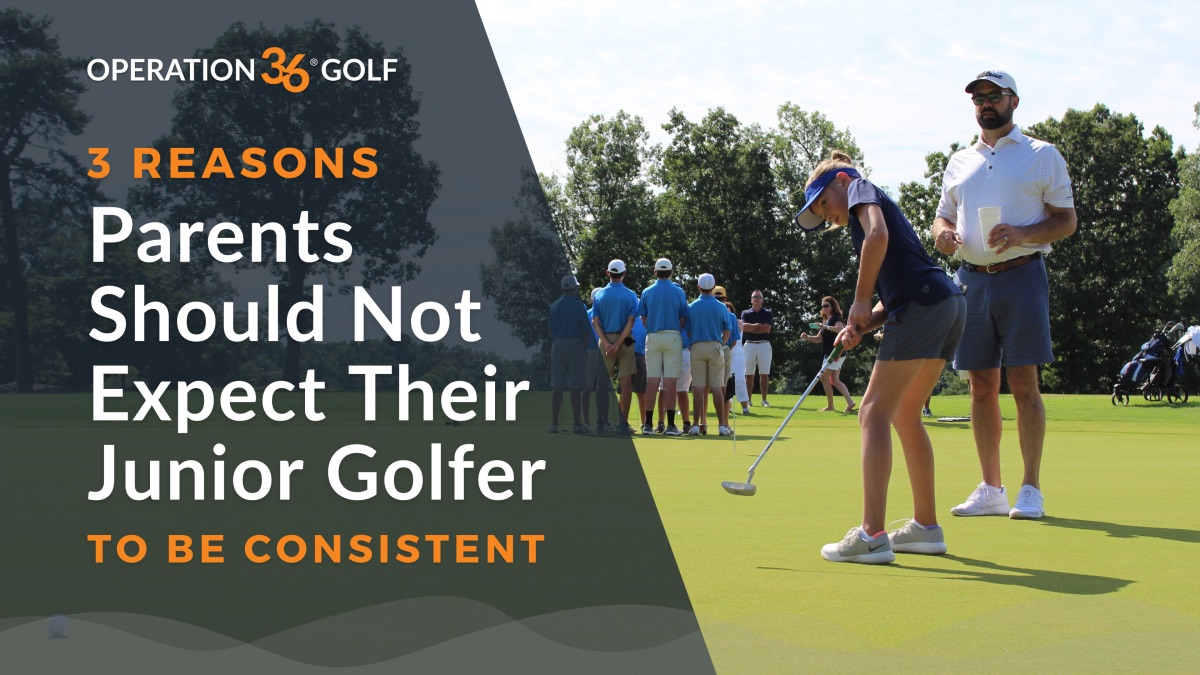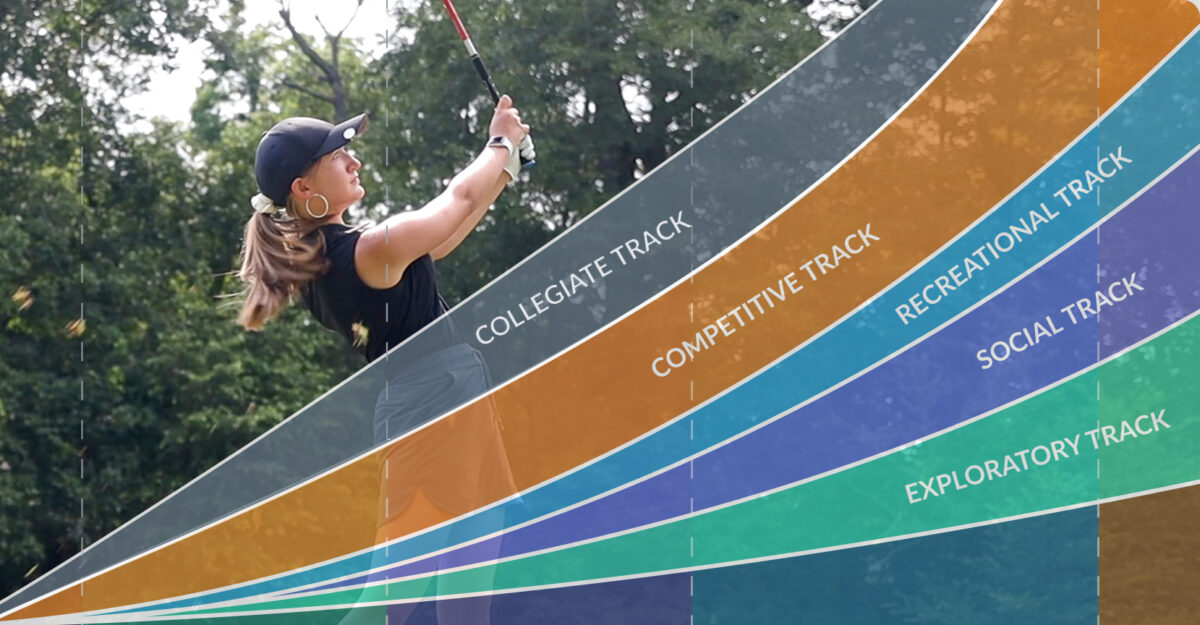
Parents want the best for their kids. This is true in life and golf. We want the same thing. That is why in a previous article, I went through how most golfers have a misconception of what consistency is. I showed examples of scores from several PGA and LPGA to show their level of “consistency” and how golfers can use that information to rethink the way you view their own game. Today, we are going to go over very similar information, but it is directed towards parents and their junior golfer’s development.
My thoughts on the idea of consistency are even stronger when it comes to junior golfers. Not only do the same basic principles apply to juniors, but there are 3 other major reasons that striving for consistency can really stunt their development.
The main point from my last article was that even the best professional golfers are not consistent based on what the average golfer defines as consistency. If you have not read that article that is okay, I will give you a quick overview.
When asking golfers, or in this instance, parents what consistency means to them they usually offer up an answer similar to; “I want to shoot around my handicap (junior’s average), but if I/they shoot 3-4 shots above that then there must be something wrong.” This is the root of the problem. The definition used for consistency is WAY off.
Let’s look at the example of Nelly Korda that I used before. Below you can see all of her tournament scores from the 2021 season. As you can see her scores are not consistent and jump around quite a bit.

Also, her lowest score of the year was a 62 and her highest score was a 78 on a par 71. So she has a 16 stroke difference between her worst and best scores. To put that in perspective for your junior golfer, if their best score for the year is 74 and they are as consistent as a professional golfer, that would mean I would expect their highest tournament score to be 90.
Let me say that again, if your junior’s best score is 74 then it would be completely NORMAL, and even expected that they have a score of 90 or higher.
Now, simply looking at the difference between a golfer’s highest and lowest score is not a full overview of what consistency really is. And if you want to see the complete deep dive I took into how I rated their consistency then I would suggest going back to read my first article. For the purpose of this article though, understanding that professional golfers have an average difference of about 14 strokes between their best and worst scores is a great start.
Juniors go through a lot of physical changes as they grow up. This is the number one reason why consistency is just never going to happen for them, especially during their pubescent years. According to Nemours KidsHealth, kids on average grow around 2.5 inches per year until puberty starts. As your junior grows they will lose a lot of their fine motor coordination, and when it comes to golf this might make it look like they have never swung a golf club before. It is temporary and completely normal! As a coach, this is something that I have seen many times, and a conversation I have had with parents letting them know that it is only temporary.
So not only is your junior’s body developing but so is their brain. The main area I want to look at is their decision-making area. Their prefrontal cortex is not fully developed until around 25 years of age. This means that your junior is going to make poor decisions on the golf course, shocking I know. Their coach can help them learn decision-making, but overall they will make poor decisions on the golf course as they continue to develop. These fluctuations in decision-making are just another reason that striving for consistency is not achievable, and frankly could actually be holding them back.
If you do not want your junior to ever experience “failure” I highly recommend that you immediately take them out of golf. Tiger Woods is arguably the greatest golfer to ever play the game and as of 2019 his “success rate,” winning tournaments, was only 22%. If we look at success and failure in golf as winning and losing that means Tiger failed almost 4 times as much as he succeeded.
Now I put failure in quotation marks above because failure has such a negative connotation that I want to explain how I view failure in a junior golfer’s development. Like I said above, the best golfer that I have ever seen failed 4 times as much as he succeeded. Failure is an inherent part of golf, which is why it is so important for improvement. If you can view those failures as a chance to learn and get better then there is nothing negative about it, which is exactly how I want you to view it with your junior.
Failing is actually a very important part of the learning process. Without failing we would not know what needs to be improved. In the next section, I am going to go over recommendations that you can use to help your junior in their golfing journey. One of those recommendations is going to be directly tied with how to view their rounds so they can objectively critique their rounds, instead of using emotion to process their progress.
First, I want you to read the heading again. How to help your junior become the golfer THEY want to be. That is the first step you should take in their development. Allow them to take ownership of their game. You may still need to encourage them to go practice or work on their game, but forcing them to do things they don’t want to do will not work out for either side. They also need to be in charge of making decisions while playing golf. Remember, allowing them to fail is actually a good thing. That is what helps them learn!
Now that we have that out of the way here are my 6 recommendations to help your junior develop as a golfer!
These are not foolproof solutions that will instantly make your junior a better player or make them more consistent. It is about building an environment where they feel comfortable taking ownership of their own game so that they can learn from their mistakes. By pushing their boundaries and making mistakes that is how juniors learn and improve.
To learn more about how you can help your junior, check out our articles on being a parent of junior golfers.


